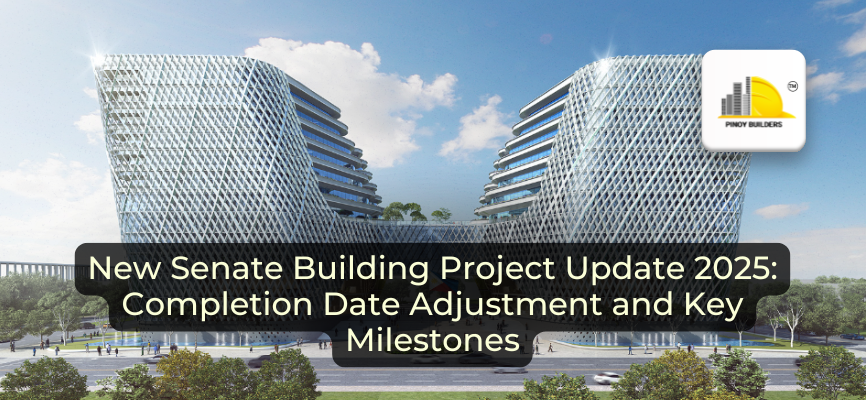The coronavirus pandemic has made things hectic for businesses everywhere. Many remain fearful of what the future holds, given the effects COVID-19 had on society and the economy. People are in need of guidance on where to go next, especially for those working in industries that involve physical contact.
With this in mind, Pinoy Builders reached out to the Philippine Concrete Industry Association (PCIA) and was able to have an online interview last May 9, 2020 with the organization’s President, Mr. John Dee.
What is PCIA?
PCIA is composed of workers involved in concrete, including contractors, suppliers, concrete producers, and testing laboratories, among others. The association oversees the education of its members on the basics of concrete through its famous Technoforum seminars, as well as its participation in construction-based events like PHILCONSTRUCT.
The PCIA, much like many others, has experienced setbacks due to the COVID-19 outbreak and the ensuing Enhanced Community Quarantine (ECQ). Despite the current situation, Dee believes the best way to move forward is to plan ahead and come to terms that there will indeed be a “new normal”.
PCIA’s 2018 Technoforum Seminar on “Concrete Technology”. Photo courtesy of PCIA.
Transitioning to the New Normal
The two challenges Dee predicts contractors will face once they are needed back to work are, first, preventing the spread of infection; and that includes taking into account outside transactions and employee honesty, and second, meeting pre-COVID levels of productivity.
The ECQ has left the concrete industry in a precarious state. A lot of projects were put on hold indefinitely and over a thousand workers lost their jobs. Most were caught unaware of this untimely economic disaster resulting in palpable losses. Getting through the year would mean forcing internal changes with social distancing in mind, regardless of quarantine status.
Recently, the Philippine government announced the areas where community quarantines will be extended and eased. In light of this, the PCIA is focusing on the establishment of protocols that encourages worker safety and security. Dee shares that it is difficult for many to adjust to a world that shies away from physical interaction. While creating strict guidelines is a step in the right direction, it is one that will take time for people to get used to. Outside of rules,
Dee believes that companies should go above and beyond in keeping their people safe, as whatever affects the company will likely affect their workers’ respective communities.
He predicts that the transition period will be slow and unremarkable at first. Companies would likely be torn in keeping the productivity up with the given working conditions. However, safety should be everyone’s number one priority. It is important to allow them to get used to the new safety protocols and then assess if there are things in need of modification.
“The buildup will be pretty slow, but there will be a lot of work for everyone. Projects will push through and there’s a lot of concreting to be done.”
Dee also expects some skepticism, in that working under these conditions will not be good in the long run. But with enough time and planning, it is possible for businesses to adapt while keeping their output rate high.
Efforts in Bettering the Country and its Economy
The PCIA has done its part in aiding the country through its charity efforts and donations to local hospitals and nursing homes. They are also working with the government if their services are needed, whether it be for infrastructure work or long-distance material delivery.
While numerous Build Build Build projects were put on hold, Dee believes that it would be in the government’s best interest for these to push through as most of the budget from social amelioration programs (SAP) came from infrastructure projects. More work means more jobs and more jobs mean a more positive outcome for the economy. Local and overseas workers would greatly benefit from it, provided they work as hygienically as possible.
“These projects are what the country needs. You are giving employment to a lot of people, so it’s really going to be helpful.”
Overall, Dee has expressed optimism for the future, so long as everyone does their part in ensuring a coronavirus-free world. Efficiency will no doubt decrease, but much like the events of 2020, nothing is set in stone. No one knows what will happen next. Still, the best thing everyone can do is to focus on planning for the future and improving what can be improved today.
“I’m still optimistic, but of course we have to find ways to be efficient. Finally, stay safe. That’s the best advice I can give right now.”
![]()








